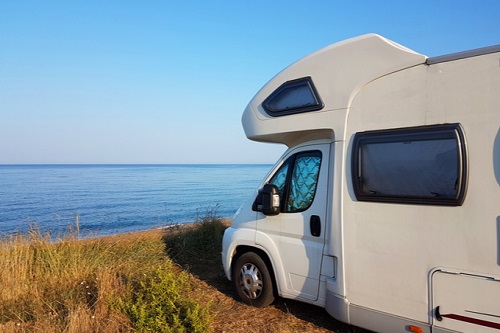Half of holidaymakers plan to skip or scrimp on breaks this year

Authored by Aviva
Many holidaymakers plan to stay in the UK or visit lesser-known destinationsSeven per cent of travel cost-cutters plan not to take out travel insuranceAviva warns against cutting cover and offers tips to potentially cut costs when taking out travel insurance
Half of holidaymakers are taking steps to cut their travel costs this year, new Aviva research reveals.
The study of more than 4,000 UK adults finds that a third (34%) of holidaymakers plan to take actions to cut the cost of their breaks, while a further 16% say they will skip holidays altogether this year.
Among those who plan to save money on their travels, the most popular tactics are taking breaks in the UK (28%) and going on holiday out of peak season (26%).
Others plan to shorten the duration of their holidays (25%), eat away from tourist attractions (13%) and find a lesser-known destination (13%). However, a worrying 7% of money-saving holidaymakers plan to cut costs by not taking out travel insurance.
The full list of ways people intend to save on their travels is as follows:
Kelly Whittington, Speciality Claims Director, Aviva UK, says: “Holidaymakers have some really good ideas on how to save, from setting themselves a spending limit, to looking for last-minute deals.
“However, it’s concerning to see that a small number of people would think about not taking out travel cover as unfortunately the unexpected can and does happen. This can mean anything from requiring medical treatment overseas, to lost luggage, to a stolen passport while abroad. As a result, holidaymakers could face unforeseen costs of hundreds, thousands of pounds – even five or six figure sums in some instances – particularly where medical bills are concerned.
“We’d also urge people to take out travel insurance as soon as they book their break in case an unforeseen incident means they need to cancel. The vast majority of holidays go without a hitch, but travel insurance can provide valuable peace of mind, just in case.”
Aviva has the following tips on cutting costs when taking out travel insurance:
Think about multi-travel cover: If you’re a keen traveller and plan to take more than one trip in the next 12 months, an annual multi-trip policy may well be more cost-effective than single trip cover for each break. Most “annual” policies will have a day limit for each break, (often 31 days although extensions are often available), so make sure you are travelling within the policy terms.Don’t take out more cover than you need: Likewise, if you intend only taking one holiday in the next 12 months, single-trip cover is likely to be the most economical way to go.Look at where in the world your cover, covers: Many travel insurers offer different levels of cover for different parts of the world. If you plan to travel within Europe, European cover should be sufficient and is likely to be cheaper than “worldwide” cover. This is because medical treatment can often be more expensive outside of Europe, so the cost of insurance reflects this risk.Consider whether you need add-ons: Additional covers such as winter sports, or golf cover are great if you are taking a specific type of holiday – but if you don’t plan on hitting the slopes or the fairways, you’re unlikely to need these add ons. Make sure you aren’t taking out cover for things you won’t need this time, particularly if you are renewing cover.Avoid duplication: Some bank accounts, building society accounts and credit cards offer travel insurance as an added benefit, so make sure you aren’t doubling up. If you do have cover that renews annually, check that your policy meets your needs and your provider is aware of any changes in your medical history since your last renewal date.Check your home insurance: If you have personal belongings cover as an add-on to your home insurance, you may already have cover for personal possessions anywhere in the world. If you’re thinking of taking out travel cover for your belongings, it may be worth checking your home insurance policy terms first.





